 This article extensively discusses the negative factors affecting the Nigerian education system. These factors range from underfunding, poor teacher training, outdated curriculum, brain drain, security challenges, lack of technology integration, infrastructure deficit and a lack of policy implementation necessary for its growth. It also proposes practical solutions to these challenges, with a call to action for governments, policy makers, educators, and other stakeholders to ensure that the system is revamped to achieve its objectives and compete with its counterparts worldwide.
This article extensively discusses the negative factors affecting the Nigerian education system. These factors range from underfunding, poor teacher training, outdated curriculum, brain drain, security challenges, lack of technology integration, infrastructure deficit and a lack of policy implementation necessary for its growth. It also proposes practical solutions to these challenges, with a call to action for governments, policy makers, educators, and other stakeholders to ensure that the system is revamped to achieve its objectives and compete with its counterparts worldwide.
According to the National Policy on Education (2004), Nigeria’s education system consists of three different sectors: basic education (nine years), post-basic/senior secondary education (three years), and tertiary education (four to six years, depending on the program of study). As noted in the policy, one of the specific goals of Nigerian education is to ensure the quality of education delivery at all levels. However, it is disheartening to acknowledge that the quality of the system has been negatively impacted due to avoidable challenges that have continuously undermined it.
Friday (2003) emphasizes the importance of education for the growth and development of any nation, including Nigeria. According to the FlexiSAF Foundation, “With a population of over 200 million people, Nigeria’s future success depends heavily on its education system.” This implies that no nation can evolve beyond the rate of its investment on education. Undoubtedly, education is an asset that yields returns anytime, anywhere, as explained by the Better Future Foundation Amodu. The burning question begging for an answer is: why has the state of the Nigerian education system been overlooked with no urgent steps taken to address the abnormalities?
The United Nations Educational, Scientific, and Cultural Organization (UNESCO) recommends allocating 15% to 20% of the budget to education. Unfortunately, the Federal Government has never allocated more than 10% of the budget to the system, resulting in insufficient funding and poor implementation of educational institutions’ objectives. In fact, a significant portion of the sector’s challenges can be attributed to the financial difficulties it faces.
According to Premium Times Nigeria, President Bola Ahmed Tinubu submitted a 2024 budget of 27.5 trillion NGN to the National Assembly for approval, with 1.54 trillion NGN allocated to the education sector, representing only 6.39%. In 2023, Former President Muhammadu Buhari allocated 1.79 trillion NGN, which was 8.2% of the national budget, as reported by The Cable. These consistently low allocations since 2000 reflect the government’s lack of regard for the sector’s importance.
Brain drain is another factor seriously affecting and threatening the quality of the Nigerian education system. In a country where many academics are not well remunerated or appreciated, and where industrial actions disrupt university calendars and academic plans almost yearly, it is difficult for affected teachers to stay in their country and not seek opportunities for greener pastures. The Academic Staff Union of Universities experienced an eight-month delay in salaries due to their last strike action before the current president ordered payment of four months, as reported by Punch Newspapers. Business Day also reports that as of 2023, approximately 45 percent of lecturers at the University of Ilorin and 50% at the University of Ibadan, among other public universities, have resigned and relocated abroad. A responsible government should not hesitate to increase academic salaries to align with the current economic realities and prioritize their welfare for optimal results. How long can we afford to continue losing our best minds to European nations?
Many Nigerian schools also struggle with using technology to facilitate effective teaching and learning processes due to the issue of power supply in the country. It is quite difficult for some students in rural areas to adapt to technology due to underdevelopment. Some state governments have also not incorporated technology in their states for their teachers to enhance their teaching strategies in the 21st century. There is also limited access to internet connectivity, and some teachers also struggle to learn the usage of the devices.
The importance of combating quackery in the teaching profession cannot be overstated. It is imperative that the Teachers’ Registration Council of Nigeria (TRCN) fulfills its mandate of regulating the profession and implements a comprehensive overhaul. Additionally, the National Youth Service Corps (NYSC) should refrain from deploying graduates who did not study Education to schools in order to improve the system, as previously discussed. Educationists should be provided with opportunities for professional development to enable them to effectively carry out their responsibilities in building a sustainable nation with citizens who have access to quality education.
In conclusion, revitalizing the Nigerian education system is crucial for building a great nation. Addressing the challenges discussed will ensure that students receive quality education in order to compete with their counterparts in other nations and have solid education in the 21st century.
REFERENCES
Business Day (2023). “Nigerian Universities and the Brain Drain Challenge.”
The Cable: Matters Arising: Despite Growing Concerns, Nigeria’s Education Allocation Still Below Recommended Benchmark.
Federal Republic of Nigeria (2004) National Policy on Education. 4th Edition. https://educationm.gov.ng/wp-content/uploads/2020/06/NATIONAL-POLICY-ON-EDUCATION.pdf
Samuel Tolulope Alimi is the founder and lead scholar at English TV, an online platform dedicated to teaching the English language on various social media platforms. He earned a BA (Ed) from the prestigious Olabisi Onabanjo University, Ogun State, where he majored in English and Education.
As a Grammar Columnist at Peoples Daily newspaper, one of the foremost and trusted national newspapers, he writes about Nigerian English on Page 23 of every Saturday’s publication, with his column titled “Common Errors in English with Samuel Alimi.” His writings have attracted considerable readership across several states, with over 30 detailed articles published.
______________________ Samuel Tolulope Alimi is the founder and lead scholar at English TV, an online platform dedicated to teaching the English language on various social media platforms. He earned a BA (Ed) from the prestigious Olabisi Onabanjo University, Ogun State, where he majored in English and Education. As a Grammar Columnist at Peoples Daily newspaper, one of the foremost and trusted national newspapers, he writes about Nigerian English on Page 23 of every Saturday's publication, with his column titled "Common Errors in English with Samuel Alimi." His writings have attracted considerable readership across several states, with over 30 detailed articles published. Samuel is a goal-oriented ambassador of Scholarship IQ, promoting its mission to build the world's largest African student directory in two local governments in Nasarawa State, Nigeria. He has also gained hands-on experience in ghostwriting autobiographies, community service, and research through his internship at SO41 Educational Consultancy, Ogun State. LinkedIn: Samuel Tolulope Alimi samueltolulopealimi@gmail.com






















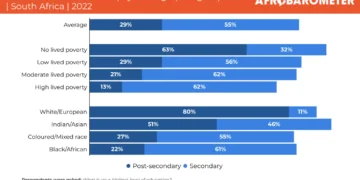

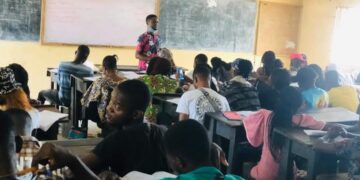
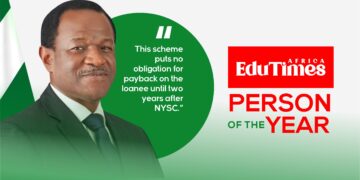






































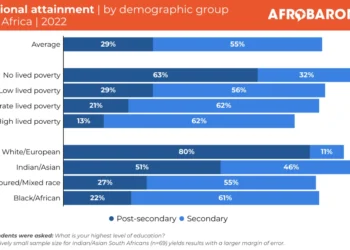

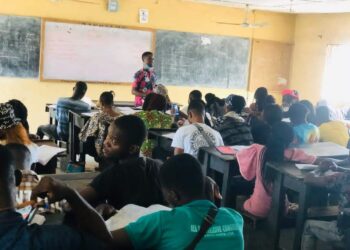

 EduTimes Africa, a product of Education Times Africa, is a magazine publication that aims to lend its support to close the yawning gap in Africa's educational development.
EduTimes Africa, a product of Education Times Africa, is a magazine publication that aims to lend its support to close the yawning gap in Africa's educational development.

